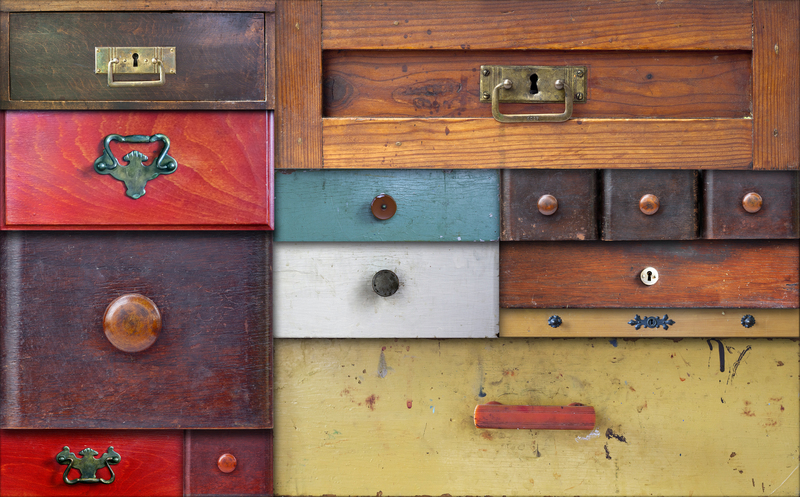Exploring Hard Rubbish: Categories and Safe Disposal Techniques
In our increasingly consumer-driven world, the accumulation of hard rubbish--also known as bulky waste--has become a significant concern for both environmentalists and local governments. From broken furniture to outdated electronics, hard rubbish encompasses a wide variety of items that require special consideration regarding disposal. This article delves into the categories of hard rubbish and offers comprehensive insight into the safe disposal techniques that can be employed to manage this type of waste responsibly.
Understanding Hard Rubbish
Before we explore the disposal techniques, it's essential to understand what constitutes hard rubbish. Generally, hard rubbish refers to large items that cannot be discarded through regular weekly household waste collections. These items can pose several problems, including environmental hazards and logistical challenges associated with their size and composition.
Categories of Hard Rubbish
Hard rubbish can be classified into several categories, each with its own disposal requirements:
- Furniture: This category includes couches, tables, chairs, and other larger household items. Made of various materials, including wood, metal, and fabric, furniture items often end up in landfills if not disposed of properly.
- Electronics and Appliances: Often termed e-waste, this includes televisions, computers, microwaves, and refrigerators. Such items need special attention due to the hazardous materials they contain, like lead, mercury, and other heavy metals.
- Mattresses and Bedding: Due to their bulky nature, mattresses and bedding pose significant challenges. They are often difficult to compact, taking up substantial landfill space if not properly recycled.
- Large Metal Items: This includes leftover construction materials like plumbing pipes or old gardening equipment. Metals are incredibly valuable when recycled and can be reintroduced into manufacturing processes.
- Wooden Items: This encompasses everything from broken fences to old timber decking. Wood can be a fire hazard and is also bulky, requiring special processing.
Safe Disposal Techniques
Now, let's explore the various techniques available for the safe disposal of different types of hard rubbish.
1. Recycle When Possible
Recycling is the optimal method for disposing of most types of hard rubbish, especially electronic waste and metal objects. Many cities offer specialized recycling programs that accept hard rubbish for minimal or no cost. For furniture and wood, materials that are in good condition can often be recycled or upcycled into new products, reducing the need for raw materials.
2. Donate Usable Items
If your hard rubbish items, particularly furniture, are still in good condition, consider donating them to local charities or second-hand shops. Many organizations are happy to accept large items as donations and often offer pickup services, making this an easy and environmentally friendly option.
3. Council Collections and Special Drives
Most municipalities offer scheduled hard waste collections, usually once or twice a year. Participating in these collection days is often free and ensures that your waste is disposed of responsibly. Check your local council's website for details about when these services are available.
4. Private Waste Collection Services
For those needing to dispose of hard rubbish outside of scheduled council pickups, several companies offer specialized collection services. Though there is typically a fee associated with these services, they provide convenience and often ensure that the waste is disposed of in an environmentally-friendly manner.
5. Safe Disposal of Hazardous Components
Items like electronics and mattresses can contain hazardous components that shouldn't find their way into the general waste stream. Specialized e-waste and hazardous material collection points are often available at local recycling centers. It is vital to handle these items with care, as they contain materials that can leak into the environment, posing serious health risks.
Environmental and Legal Implications
Understanding the environmental and legal responsibilities associated with hard rubbish disposal is crucial. As many types of hard rubbish contain hazardous materials, inappropriate disposal can lead to environmental contamination and legal penalties. Strict regulations are in place across many regions to govern how such waste is handled, recycled, and disposed of.
Conclusion
The accumulation of hard rubbish is an inevitable part of modern life. With conscious effort and the right knowledge, individuals can manage their waste output better by understanding the categories of hard rubbish and employing safe disposal techniques. Whether you opt to recycle, donate, or use specialized collection services, taking responsibility for your bulky waste contributes significantly to preserving our environment and adhering to legal waste management frameworks.
To create a positive impact, make recycling and proper disposal a routine practice, ensuring that your hard rubbish doesn't deteriorate our ecosystems or exacerbate landfill issues. By doing so, we can all play a role in sustaining a cleaner, healthier planet for future generations.

